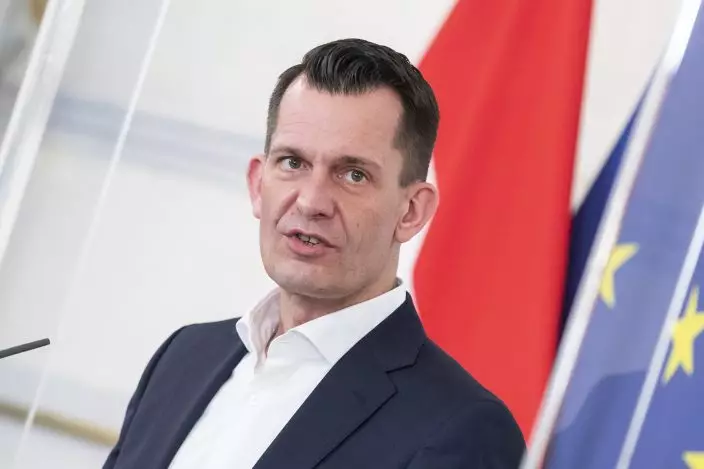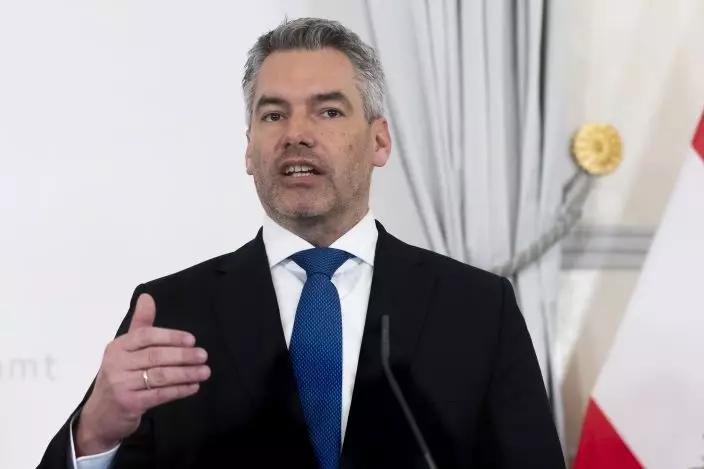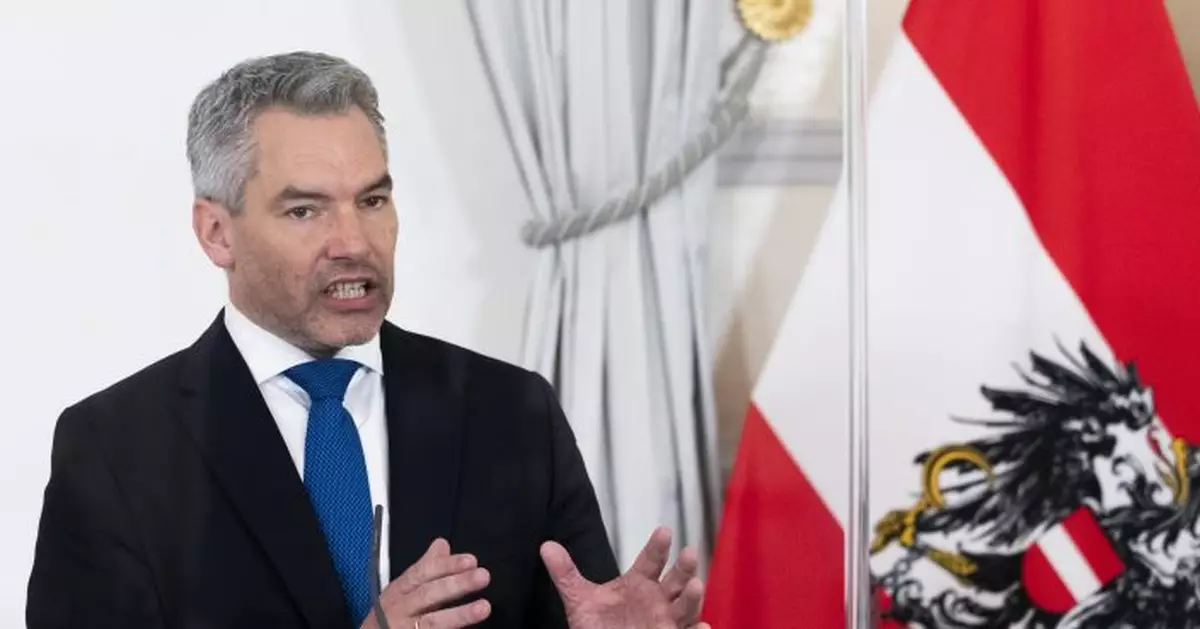The Austrian government said Wednesday that it plans to end most of the country's COVID-19 restrictions on March 5, though wearing masks will remain obligatory in some places.
Chancellor Karl Nehammer announced the decision at a news conference in Vienna. Officials stressed that the pandemic is not yet over but a stabilization of new infections allows Austria, which recently became the first European country to enshrine obligatory vaccinations for most adults in law, to open up step by step.
In a first step starting Saturday, proof of vaccination or recent recovery will no longer be required to attend events, go to restaurants, bars or hairdressers and various other activities. Proof of a negative test will suffice for those things.

Austria's health Minister Wolfgang Mueckstein presents the new COVID19- regulations at a news conference after a meeting of the Austrian government with the 'Austrian Covid Crisis Coordination Commission' (GECKO) in Vienna, Austria, Wednesday, Feb. 16, 2022. By March 5, 2022 most COVID-19 restrictions will be lifted. (AP PhotoLisa Leutner)
“On March 5, the bulk of the restrictions that burden people so much will end,” Nehammer said.
The entry requirements and most other restrictions will be dropped altogether, with night clubs reopening and a midnight curb on opening hours for restaurants and bars ending.
Nehammer said that a requirement to wear protective FFP2 masks will remain in place “where it is absolutely necessary to protect vulnerable groups,” including in public transport, essential shops and pharmacies. Proof of at least a negative test will continue to be required for staff and visitors at hospitals and nursing homes.

Austria's Chancellor Karl Nehammer presents the new COVID19- regulations at a news conference after a meeting of the Austrian government with the 'Austrian Covid Crisis Coordination Commission' (GECKO) in Vienna, Austria, Wednesday, Feb. 16, 2022. By March 5, 2022 most COVID-19 restrictions will be lifted. (AP PhotoLisa Leutner)
Requirements to enter Austria will be relaxed. At present, travelers need to provide proof of vaccination or recent recovery plus either a booster shot or a negative test. From March 5, evidence of vaccination or recovery, or a negative test, will suffice.
Austria will join countries including Denmark that have relaxed many or all restrictions.
Health Minister Wolfgang Mueckstein stressed that the longer-term outlook remains unclear.
“I can't promise that we won't need stricter measures in the coming months — the virus has taught us that often,” he said.
“We must use the summer to vaccinate so that we are not surprised by a new variant in the fall,” Mueckstein added. “And the general COVID-19 vaccine mandate, which we as the government are of course standing by, will give us this safeguard.”
A requirement for most adults in Austria to be vaccinated became law earlier this month, the first such rule in Europe. But enforcement by police isn't due to start until mid-March, and authorities will decide whether and when further steps take effect with the help of a commission of experts.
Follow AP’s pandemic coverage at https://apnews.com/hub/coronavirus-pandemic


